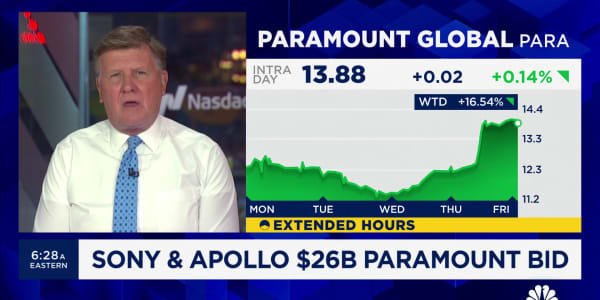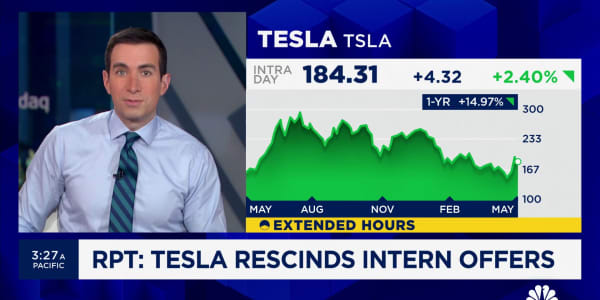Recapping the day's news and newsmakers through the lens of CNBC.
Notes:
Investors were thrilled by today's apparent resolution of the government shutdown and debt-ceiling fight, driving the markets up by more than one percent. But some analysts caution against expecting stocks to keep on keeping on. As attention returns to mundane things like corporate performance, investors may notice that fewer companies are beating earnings projections than in recent quarters, and that earnings are expected to rise at a weak 2 percent pace in the near future. The economy is slower than many had expected it to be by now, and there's still uncertainty over when the Federal Reserve will start trimming the bond-buying program that has helped boost stock prices.
Quotes:
"If there's a deal tonight, I think you're going to get a little bit of selling on the news. You've got the realization that the earnings season thus far has been ignored and is lackluster. We're going to get the 'all clear' signal from Washington, but we're not going to get the 'all clear' signal from corporate America."—Art Hogan of Lazard Capital Markets.
"The minute we start focusing on earnings and revenues, our market could be vulnerable."—Jack Ablin, CIO of BMO Private Bank
The never-ending cycle of debt warfare
Notes:
A temporary resolution of the federal budget and debt-ceiling crisis is better than no resolution, but leaves a cloud over debt-dependent industries. That includes commercial real estate, which has been on a badly needed rebound. Commercial property sales are on a pace to exceed $300 billion this year, a 380 percent increase from the low in 2009. But because the industry is heavily dependent on credit and sensitive to interest rates, sales could shrivel if rates climbed because Washington fails to end the cycle of debt emergencies.
Quote:
"The most discouraging thing that we are seeing right now is that this Congress is going to go through yet another crisis and probably end up kicking the can down the road, but not even as far as many people would like to see it get kicked."—Willy Walker, chairman and CEO of Walker & Dunlop
Put a lock on that cash register
Notes:
Executives in cash-heavy businesses know they have to have trustworthy folks manning the registers. Well, that's not enough. A new breed of crooks is using a hard-to-spot gadget to snag debit and credit card information that's swiped at the register. The devices, often purple, are plugged into the keyboard port. Security cameras recently caught thieves installing the inch-long devices on registers at a Nordstrom store in Aventura, FL. Two thieves distracted the sales staff while a third photographed the back of the register, removed the back panel and photographed the inside. Hours later the team returned to again distract staff and install devices designed to match the register's colors.
JPMorgan is (sort of) contrite
Notes:
A $100 million fine over the London Whale case is chickenfeed to JPMorgan Chase. But regulators are highlighting another aspect of the firm's settlement of a market manipulation case brought by the Commodities Futures Trading Commission: the bank's admission of guilt. Or partial guilt, we should say. Traditionally, securities settlements involve neither admission nor denial of wrongdoing, a practice that irks investor advocates. This time the bank admitted its traders "acted recklessly." But it stopped short of conceding it had manipulated securities prices. One of the CFTC's four commissioners criticized the settlement as too soft.
Quote:
"Failure to [pursue a tougher manipulation case] undermines the Commission's integrity and its enforcement powers in favor of taking shortcuts to achieve high-profile settlements."—CFTC Commissioner Scott O'Malia
Failing (butt) forward
Notes:
When Sara Blakely was growing up, her father would often ask her the same question at dinnertime—What have you failed at this week?
Blakely's embrace of failure has helped make her the youngest self-made female billionaire in America. The 41-year-old Florida native was selling fax machines door-to-door before she came up with the idea for Spanx, the body-shaping undergarments that have become a global sensation.
Quote:
"What have you failed at this week?"—Sara Blakely
—By Jeff Brown, Special to CNBC.com





